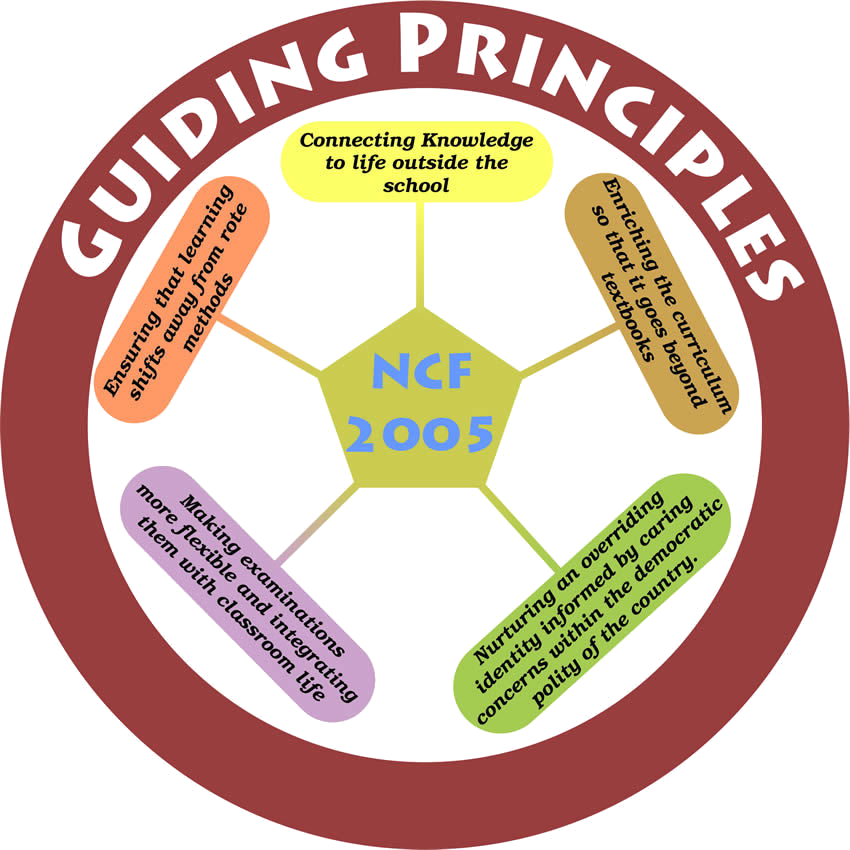
National Curriculum Framework (NCF 2005)
The National Curriculum Framework (NCF 2005) is one of three national curriculum frameworks published in 1986, 2000 and 2005 by the National Council of Educational Research and Training (NCERT) in India. The document provides the framework for making syllabi, textbooks and teaching practices within the school education programmes in India the approach and recommendations of NCF-2005 are for the entire educational system. The syllabus and textbooks based on it are being used by all the CBSE schools. NCF 2005 has been translated into 22 languages and has influenced the syllabi in 17 states. For more information, please go through the following link:
http://www.ncert.nic.in/rightside/links/pdf/framework/english/nf2005.pdf
http://www.ncert.nic.in/rightside/links/pdf/framework/ncf_hindi_2005/ncf2005.pdf

National Curriculum Framework for Teacher Education (NCFTE 2009):
Teacher education is an essential part of educational system. To prepare effective, skilful and humane teacher, pre-service as well as in-service teacher programmes have come into the scenario of education. There is an urgent need for guiding the teacher education programmes. In this background National Council for Teacher Education (N.C.T.E) developed N.C.F.T.E - 2009 on the basis of National Curriculum Framework 2005 and the right of children to free and compulsory education act 2009 as well as the fundamental tenets enshrined in the constitution of India. This national curriculum framework for teacher education elaborates the context, concerns and vision underscoring that teacher education and school education have a symbiotic relationship and developments in both these sectors mutually reinforce the concerns necessary for qualitative improvements of the entire spectrum of education including teacher education as well. The new concerns of school curriculum and the expected transactional modalities have been emphasized in designing this framework for all stages of school education. Issues related to inclusive education, perspectives for equitable and sustainable development, gender perspectives, role of community knowledge in education and ICT in schooling as well as e-learning become the centre-stage in the framework. For more information, please go through the following link:
http://ncte-india.org/ncte_new/pdf/NCFTE_2010.pdf